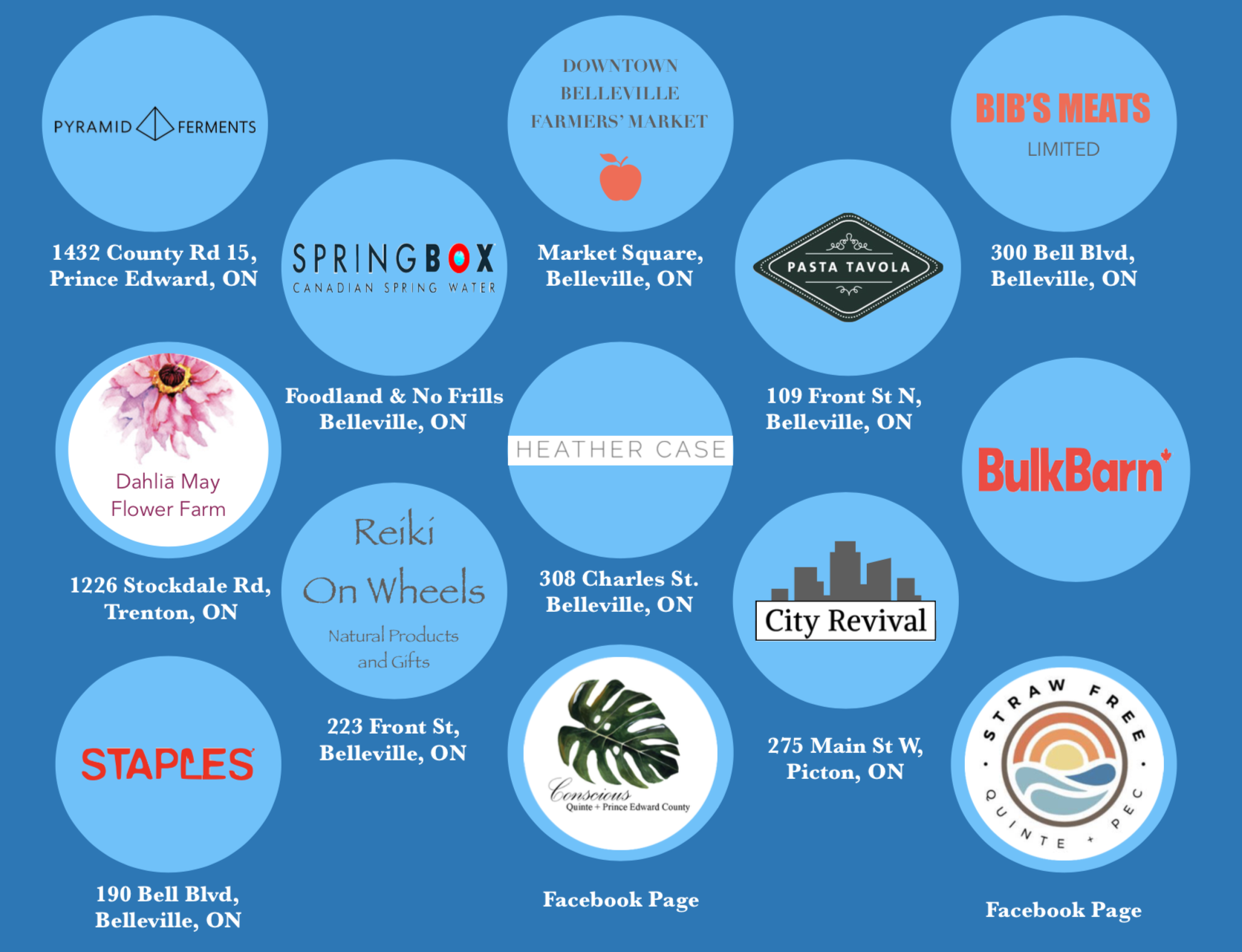Environment week is coming to a close, but why not take the things we’ve learned to make every week environment week? Just in case you missed what has been discussed on social media @quinterecycles, we’ve summed it up here. This week we went over a lot, with the focus being on plastics. On Monday, we focused on the different types of plastics and how to tell whether or not they can be accepted in our program based on their ID code. We went over how long it takes items to degrade naturally in our environment and landfills if they aren’t disposed of properly. We also learnt about why certain plastics aren’t recyclable.
Thermoplastics: have weaker bonds, meaning the plastic is more pliable. For example plastic water bottles are a thermoplastic. These types of plastics are recyclable because when they are heated they melt which allows them to be recycled and made into new objects.
Thermosetting plastics: have much stronger bonds and the plastic is not pliable. These types of plastics do not melt when heated, they catch on fire.
On Tuesday we covered microplastics and why they are harmful. When plastics do not get recycled, they end up in landfill or in our environments. Of the 260 million tons of plastics produced globally each year, 10% of this ends up in the ocean. Plastic in waterways is often mistaken for food by many aquatic species and then ingested which causes many animal deaths each year. Another problem with plastic in our waterways is microplastics. Microplastics are small pieces of plastic that are created from bigger plastics being broken down. Researchers are now finding small plastic particles in the fish we eat and in the water we drink. So I’m sure you’re thinking what does this mean for our own beautiful waterways in the surrounding Quinte area? All waterways are connected, so even though we tend to talk more about oceans, this is a global problem that affects not only oceans but lakes and rivers as well. To find about more how this affects lake Ontario check out water keepers video https://www.youtube.com/watch?time_continue=610&v=W0ieE6wyt1Y
What can you do to protect your community from plastic water pollution? There are many ways that you can reduce this simply by making conscious consumer choices. Make a zero waste kit for every day activities. This could include a reusable knife, fork and straw so you’re prepared for everyday life in an eco-friendly way. For more tips and tricks you can also check out our latest blog post about waste free camping to get more ideas on how to reduce your waste not only when you’re camping but everyday.
On Wednesday, we showcased some amazing businesses in the Quinte area that are doing what they can to reduce their plastic and non-recyclable waste.
Spring Box Water – “We are not “anti plastic bottle” but we are “anti pollution”. We are committed to eliminating plastic bottles in our waterways, forests, ditches and landfills. We do support recycling.”
Dahlia May Flower Farm – Locally grown flowers with a waste reduction mindset. The Dahlia May flower farm philosophy is “We strive to grow high quality, long-lasting, and distinctive blooms. Our flowers connect people, create memories, and bring joy.”
Belleville Farmers Market: – Local food and goods are the best way to reduce waste! The market is held in the Market Square beside City Hall, on Tuesdays, Thursdays and Saturdays. 7 a.m to 6 p.m. all the year round
Heather Case Homemade Clothing: “The fabrics we use are sourced in Canada giving preference to sust
ainably grown natural fabrics that are selected for their comfort, quality and renewability”
City Revival Picton: It takes up to 2700 L of water to make a single T-shirt. Going to thrift shops not only saves the planet but saves your pocket book. City revival offers an amazing selection of discount designer brands.
Reiki on Wheels Natural Products and Gifts: from shampoo bars to unique eco-friendly gifts, Reiki on Wheels has lots of unique items with reduced packaging to promote smart consumer choices.
Pyramid Ferments: We source our raw ingredients as close to home as possible. Combining our own ecologically grown produce with wildcrafted ingredients from Prince Edward County and high quality vegetables from Ontario farms.
Bulk Barn: Bulk barn is an excellent source for getting your dry ing
redients such as pasta, crackers and rice minus the non recyclable packaging. Bulk Barn allows customers to use their own reusable containers.
Bibs Meats: Local butcher, Bibs Meats allows people to bring their own containers to put meat in, reducing plastic and styrofoam waste.
Pasta Tavola: Refillable glass bottled milk allows you to reduce plastic consumption from the normal bagged milk.
Staples: Bring you old pens and markers to Staples in either Trenton or Belleville t
o have them recycled instead of going to landfill.
For more information about these businesses, check out their websites.

Thursday we went over some powerful statistics that really showcase how recycling helps our environment
• Every pound of recycled PET plastic used in place of virgin material reduces energy use in plastic production by 84%!
• Each year, we use 1 billion plastic shopping bags, creating 300,000 tons of landfill waste
• 1000 to 2000 gallons of gasoline can be saved recycling just one ton of plastic
• Around 2,000 pounds of oil, the amount of water used by one person in two month’s time and two people’s energy consumption for one year can be saved by recycling just one ton of plastic wastes.
Thank you to everyone who participates in environment week every week. Small changes are powerful changes. Reducing single use plastics and making conscious consumer choices is a key step in reducing plastic waste. We can all #BeatPlasticPollution!
